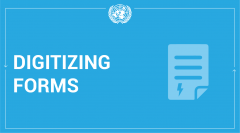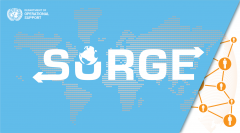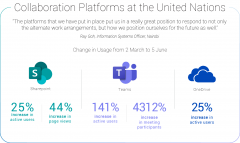On 28 June 2022 the Secretary-General signed the second iteration of the statement on internal control for all operations of the Secretariat for 2021, a year after the first ever statement was published.
The statement on internal control is a public accountability document that provides reasonable assurance that the Secretariat operated under an effective system of internal control during 2021. The scope of the statement, which is based on the COSO internal control-integrated framework, covers the three categories of objectives which allow the Organization to focus on differing aspects of internal control: operations, reporting and compliance.
Following a similar process to the previous year, the Financial Policy and Internal Control Service in the Department of Management Strategy, Policy and Compliance, supported entities from across the Secretariat to achieve greater accountability for results through a comprehensive self-assessment exercise to review the effectiveness and functioning of applicable entity-level and activity-level internal controls. In a signed assurance statement, heads of entity reaffirmed their continued commitment to ensuring the effective and efficient functioning of internal controls in the entity for which they received delegated authority and committed to taking any action necessary to strengthen internal controls across the Organization. These entity assessments, and the review of the results and assurance statements, formed the basis for the statement on internal control, now available to the public (see linked documents below).
The statement on internal control is a very important step towards a more systematic and integrated approach to managing risk as well as to ensuring the optimal use of resources, improving the Secretariat’s effectiveness and increasing confidence in the Organization.
Every year, the statement on internal control will reflect on specific areas of operations where opportunities for improvement were identified. In the case of the statement for all operations of the Secretariat for 2021, some areas identified in the first ever statement for 2020 operations were maintained in 2021: property management; maintenance of risk registers; talent acquisition processes; advance purchase of air travel tickets; and personal data protection and privacy.
In addition, the results of the 2021 self-assessment exercise resulted in the identification of three new opportunities for improvement: monitoring of programme and project implementation; management of workplace conduct and discipline; and cybersecurity.
Last but not least, some areas previously identified in 2020 were deemed to no longer present significant risks to the achievement of the Organization’s objectives and were considered to be “closed”: learning skills and development; and monitoring, evaluation, and oversight of third parties.
For more information on this initiative, please send a message to oppfb-internal-control@un.org.




